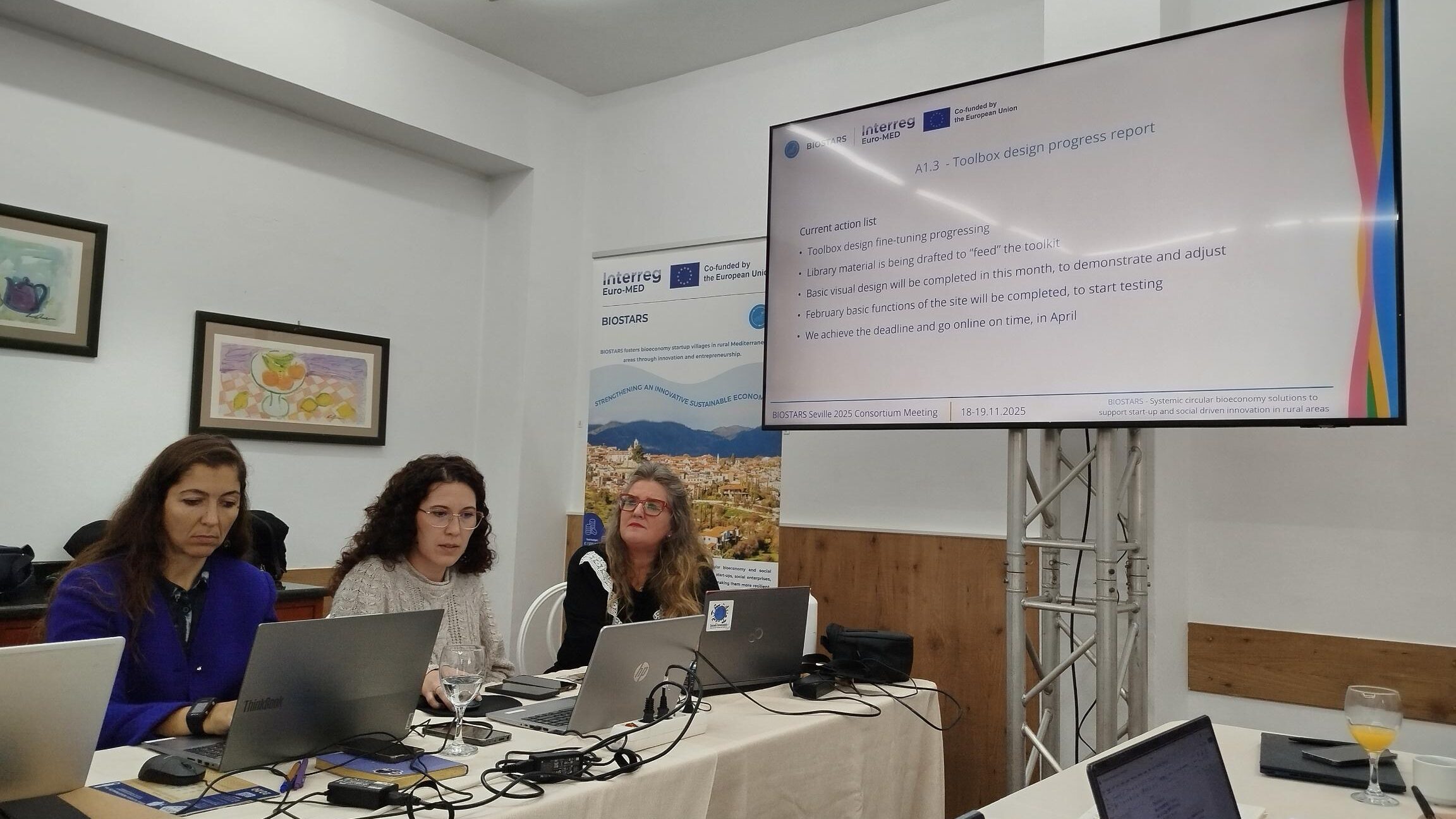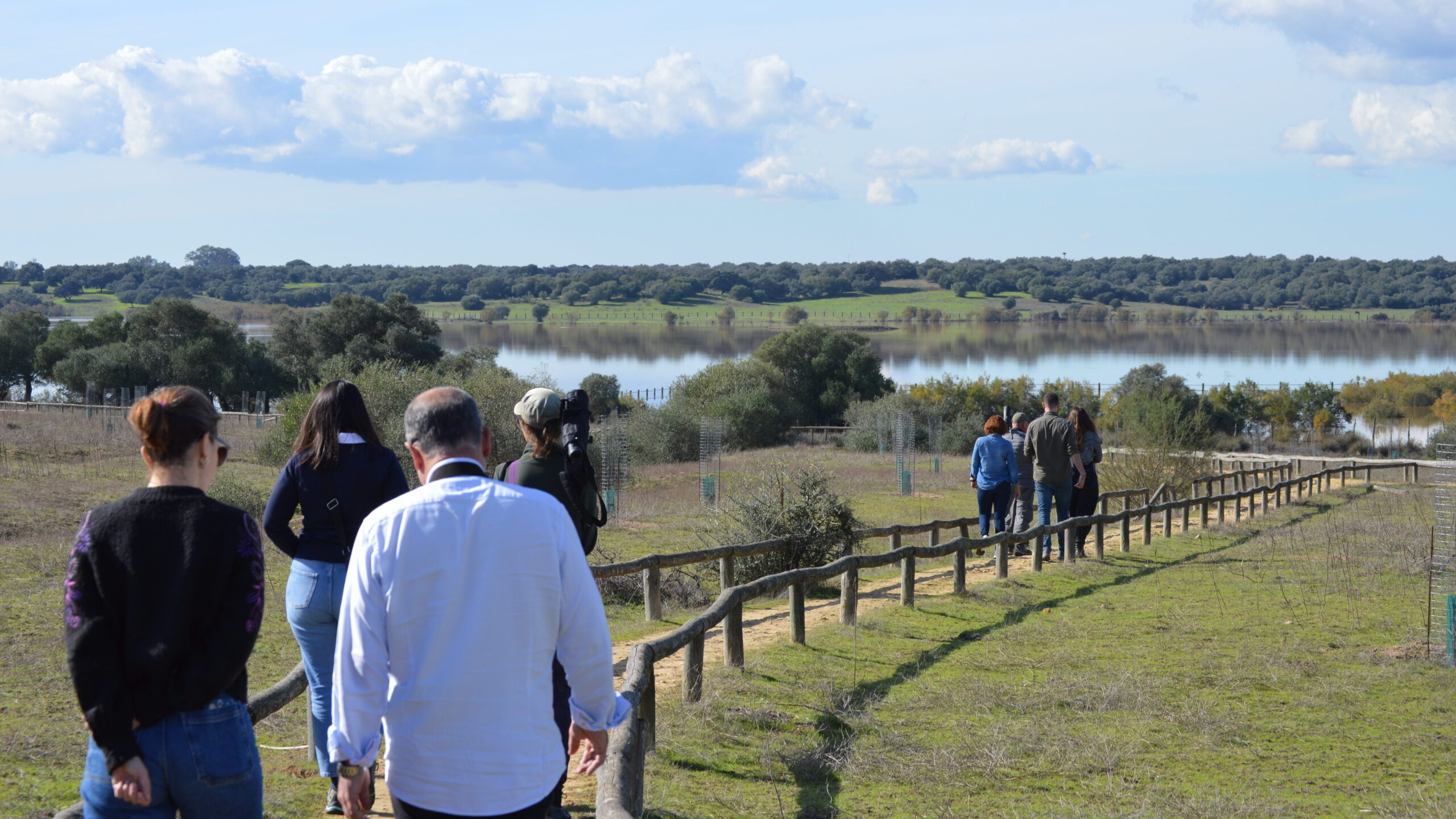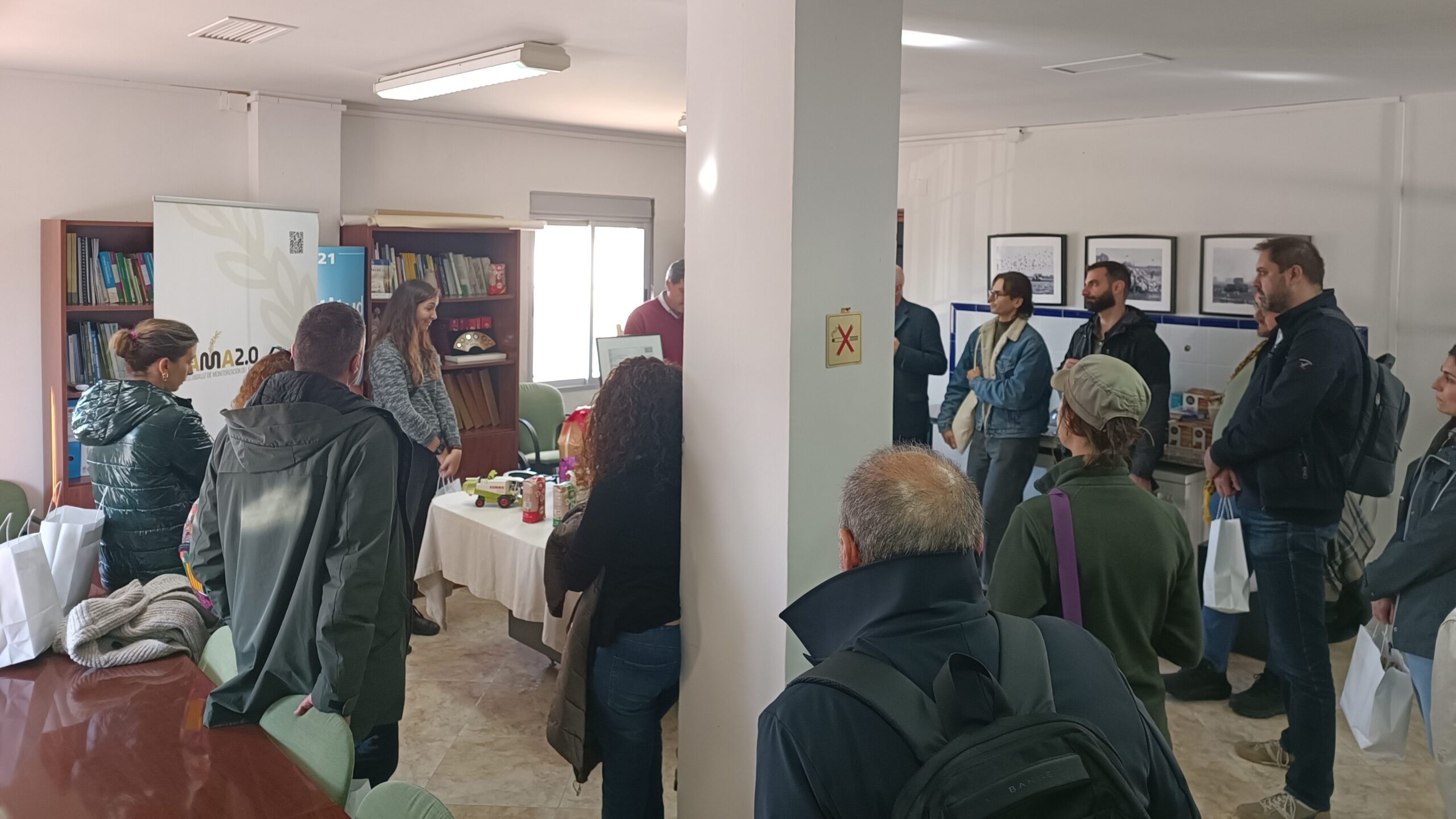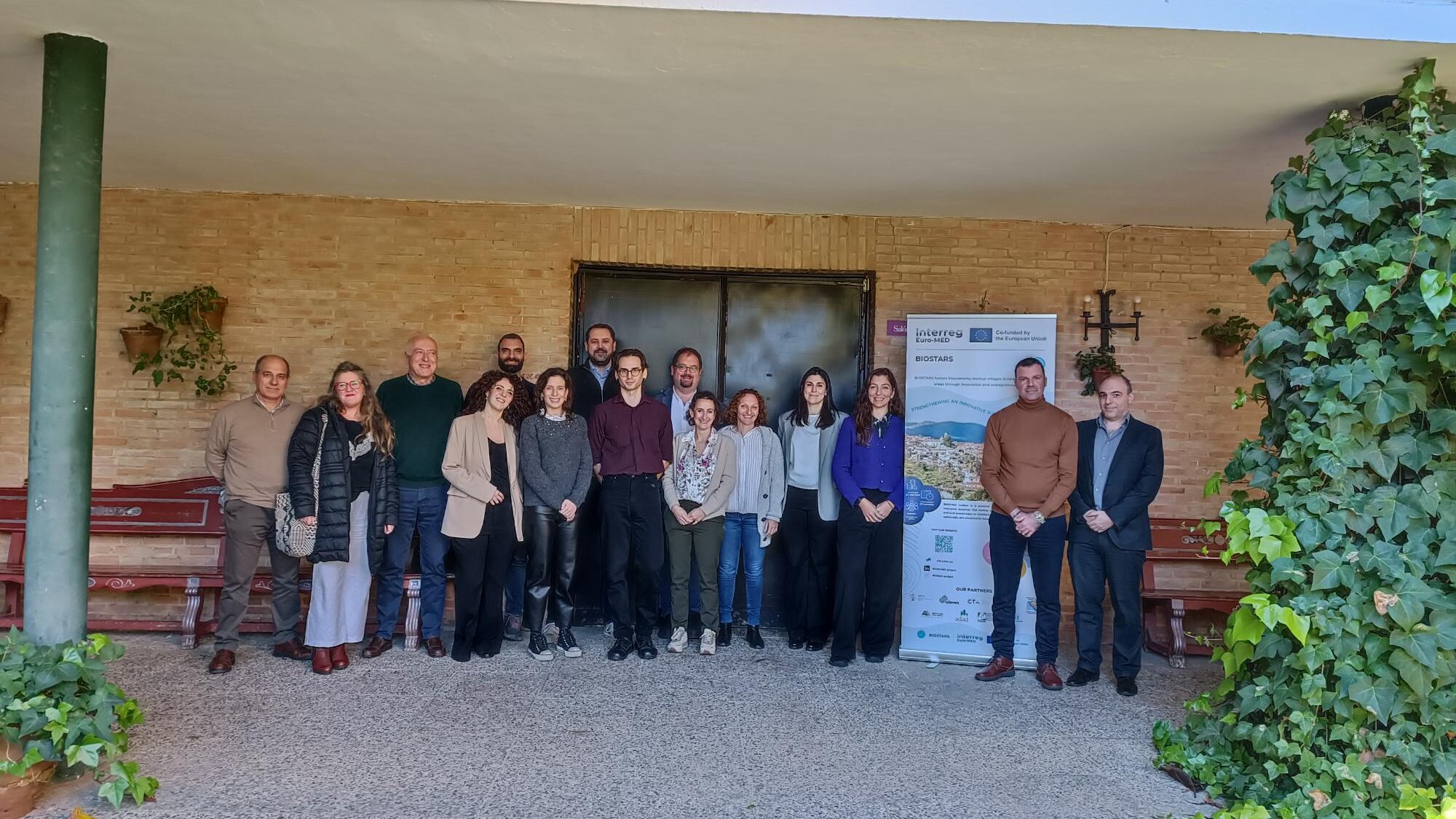On 18 and 19 November, the Europeanproject BIOSTARS held a consortium meeting in Pilas (Seville), a key face-to-face meeting to analyse the progress of activities and coordinate the next steps in the implementation of innovative solutions for the development of bioeconomy start-up villages in the Mediterranean.

During the first day, partners reviewed the progress of the project’s technical, financial and operational tasks, addressing milestones in the work packages on BIOSTARS Toolbox management, pilot implementation, scalability and communication strategies. The sessions provided an opportunity to share preliminary results, data needs, risks and opportunities to maximise the project’s impact in rural Mediterranean areas.

The second day was devoted to a field visit to the Dehesa de Abajo Nature Reserve, in the Doñana area, where members learned first-hand about the ecological value of the area and the importance of integrating sustainability criteria into territorial development models. The day continued at the facilities of the Seville Rice Growers Federation (FAS), where representatives of the organisation explained how the local rice sector is incorporating innovative solutions to optimise the use of resources—such as water, fertilisers and pesticides—improve crop quality and reduce its carbon footprint.

During the visit, FAS also presented the SAMA 2.0 project, an agromonitoring platform based on IoT, Artificial Intelligence, data analysis and Earth observation, which improves rice crop monitoring and integrates advanced technologies such as satellite imagery, in situ sensors and unmanned aerial vehicles with hyperspectral capabilities.
Representing CTA were innovation consultants Marta Macías, María García and Ana López, together with Marta González, the project’s communications specialist.
This face-to-face meeting served to strengthen coordination between partners, review the project’s progress and continue building a common roadmap to promote social innovation and sustainable entrepreneurship in rural Mediterranean areas.


